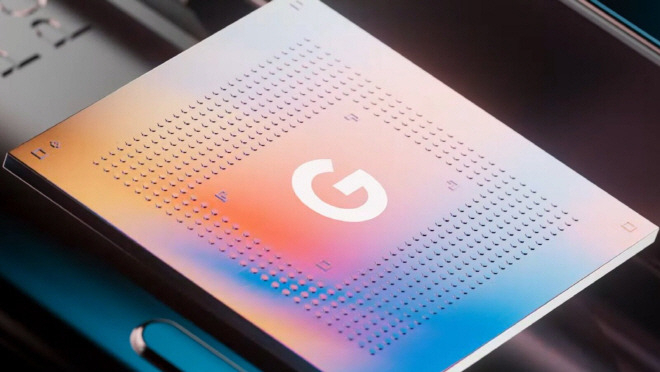
Samsung Electronics' foundry division is expected to get a boost as Google reportedly plans to build its new Tensor G4 chipset based on Samsung’s latest Exynos 2400 blueprint, according to industry sources on Wednesday.
Google's new Pixel 9 smartphone is set to launch in the latter half of this year, and it is highly anticipated to incorporate the upcoming Tensor G4 chipset.
SamMobile and other industry sources predict Samsung Foundry to produce Google's new chipset leveraging its advanced 4-nanometer manufacturing process building its Exynos 2400 chipset. It is also likely to use Samsung's fan-out wafer-level packaging technology, which should help the Pixel 9 run cooler.
At the same time, the Tensor G4 is likely to adopt an eight-core CPU design instead of Exynos 2400's 10-core.
The news comes as Samsung is receiving positive reviews for its first artificial intelligence-powered Galaxy S24 series, launched in January. Equipped with the powerful Exynos 2400 chip, the Galaxy S24 series achieved a record of being the Galaxy S series that sold the fastest, logging sales of 1 million units in 28 days in Korea.
Samsung has been working to enhance its flagship Exynos chipset. For the Galaxy S23 series, debuted in 2023, all of the models used the Snapdragon 8 Gen 2. For the Galaxy S24 series, the tech giant used the Snapdragon 8 Gen 3 for models sold in North America and China, and the rest of the regions were supplied with models using the Exynos 2400.
Samsung was the manufacturer of the Tensor G3 chipset used in the Pixel 8 series.
To strengthen its flagship Exynos, Samsung has established teams dedicated to the optimization of application processors. It is also considering facilitating its 3 nm manufacturing process technology for the next generation of chipsets.
Industry sources also predict the smartphone giant will adopt the new Exynos 2500 chipset for all models of the upcoming Galaxy S25 series.
Samsung’s Foundry aims to increase its share in the foundry market and has set the goal of becoming the market leader by 2030.
In the third quarter of 2023, TSMC topped the market, securing 57.9 percent of the foundry revenue market share. While Samsung witnessed 14.1 percent growth on-quarter in its revenue during the period, it came in far behind TSMC, posting 12.4 percent of the market share.
In the wake of growing demand for advanced chips for future technologies like AI and metaverse, Big Tech leaders are turning their heads to Samsung to produce their most advanced chips.
During his meeting with President Yoon Suk Yeol in Seoul last week, Meta CEO Mark Zuckerberg expressed concerns about his company's high reliance on TSMC, characterizing the geopolitical situation surrounding the island as "volatile."
Stressing the importance of Samsung Foundry in the global economy, Zuckerberg also hinted at Meta's possible collaboration with Samsung, according to presidential officials.
Not only Zuckerberg, but AI startup Tenstorrent CEO Jim Keller and OpenAI CEO Sam Altman also recently visited Seoul and met with top brass of Samsung, including Chairman Lee Jae-yong to discuss possible collaboration.
"Samsung Electronics holds strengths in the fact that it is an integrated device manufacturer. Not only does it run a foundry business, but it also has facilities prepared for memory chip production, chip design and advanced packaging," an industry official said.
"Big Tech is now looking to diversify channels for chip supply that is largely concentrated on TSMC, and Samsung should step up to boost their competitive edge and win orders," the official said.




















